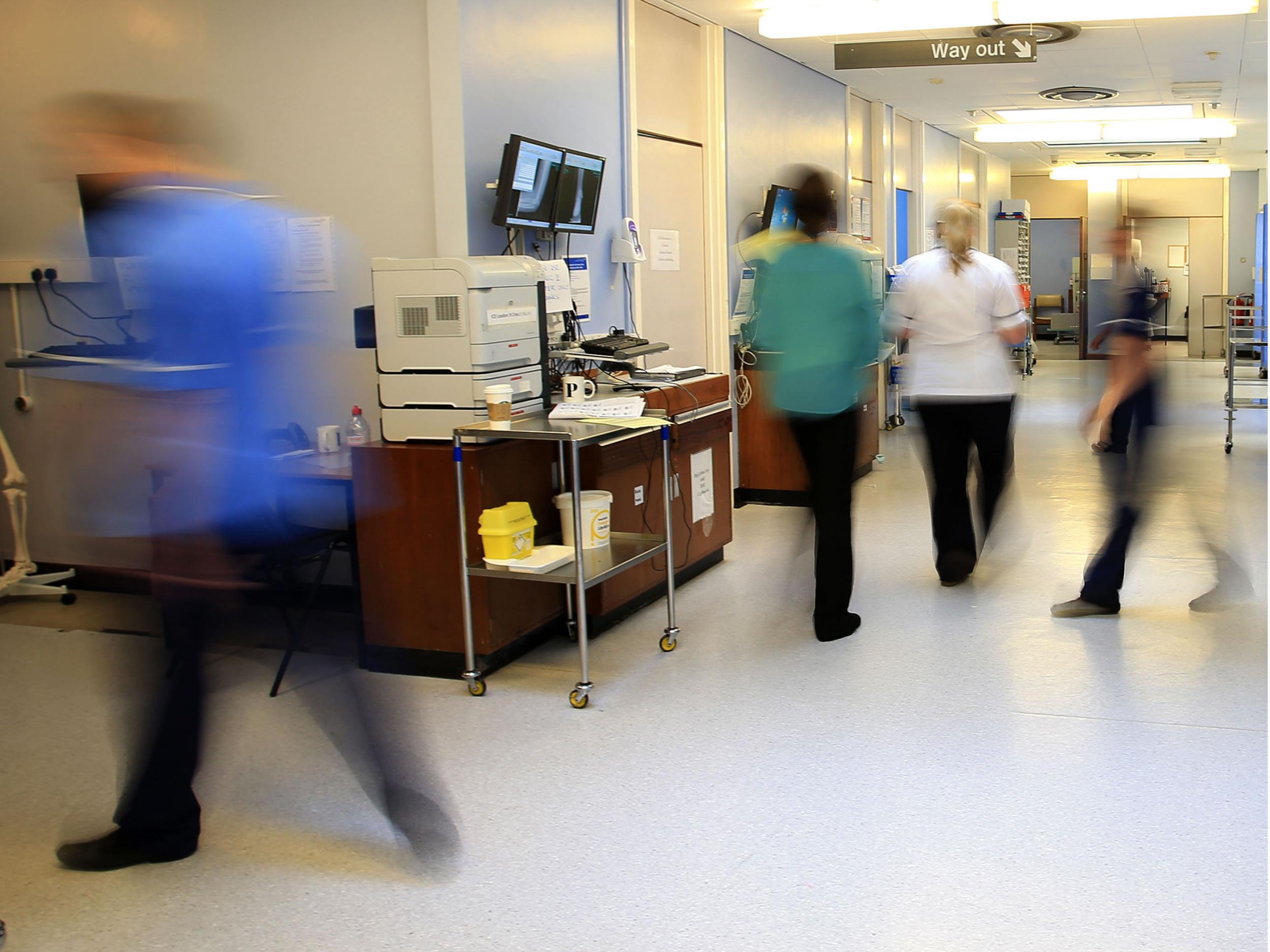NHS ranked among world’s best at protecting poor despite having far fewer beds and staff than other countries, report finds
The health service compared well to other G7 countries in a report commissioned ahead of its 70th anniversary

Your support helps us to tell the story
From reproductive rights to climate change to Big Tech, The Independent is on the ground when the story is developing. Whether it's investigating the financials of Elon Musk's pro-Trump PAC or producing our latest documentary, 'The A Word', which shines a light on the American women fighting for reproductive rights, we know how important it is to parse out the facts from the messaging.
At such a critical moment in US history, we need reporters on the ground. Your donation allows us to keep sending journalists to speak to both sides of the story.
The Independent is trusted by Americans across the entire political spectrum. And unlike many other quality news outlets, we choose not to lock Americans out of our reporting and analysis with paywalls. We believe quality journalism should be available to everyone, paid for by those who can afford it.
Your support makes all the difference.The UK is among the best health systems in the world at protecting those who cannot afford to get ill – despite having fewer staff, beds or equipment than virtually all other developed countries health systems.
How Good is the NHS?, a report comparing the UK and health systems of 18 other countries in the G7, western Europe and English speaking world found it performs better than many of its detractors would claim.
It has some of the lowest rates of “catastrophic costs”, where patients are required to pay more than 10 per cent of their income to cover an unexpected health problem, is relatively efficient and even appears to be keeping up with waiting times.
This is despite having lower than average numbers of all types of staff, except midwives, and just one doctor for every 356 people compared to an average of one for every 277.
However, on outcomes the NHS still lags behind. Too many people die where appropriate medical care could save them and survival rates for eight of the 12 the most lethal diseases are poor, though improving for stroke and cancer.
Many of these conditions depend on lifestyle factors outside NHS control, such as obesity and smoking. However staff shortages and the fact that the NHS has fewer MRI and CT scanners per patient than any other country can also delay diagnosis and lower survival rates.
“We can be proud of the fact that the UK is a standout nation where people are not put off from seeking care due to cost, and the NHS is cheap to run,” said Dr Jennifer Dixon, chief executive of the Health Foundation, contributors to the report alongside the King’s Fund, Institute for Financial Studies and Nuffield Trust.
“But austerity has bitten hard, and the lag of investment shows. If we want to hold our head up high next to our European neighbours we can and must do better.”
The report, commissioned by the BBC in advance of the health service’s 70th anniversary, compared the UK and Australia, Austria, Belgium, Canada, Denmark, Finland, France, Germany, Greece, Ireland, Italy, Japan, Netherlands, New Zealand, Portugal, Spain, Sweden, and the USA.
On measures relating to efficiency, one of the areas the NHS is most heavily criticised, the report found it performs well.
It spends less on administrative costs and managers to plan and oversee more frontline care than most other countries, ranking alongside Portugal and Ireland as devoting 1.5 per cent of health spending on organisational expenses.
This compared to an average of 3.1 per cent, 4.1 per cent in France and 7.9 per cent in the US.
Just 2.3 per cent of Britons in 2016 had skipped medications because of costs, compared to an average of 7.2 per cent and the NHS spends far less on costly branded drugs than other countries.
These factors help it perform well in management of long-term conditions like diabetes where regular medication is needed and can prevent costly health complications.
On the proportion of patients seen within four hours at A&E and length of time waiting for hip operations the NHS performs around average, data from 2016 reveals, while it spends relatively little on managerial staff and administrative costs.
However, the current picture is more complicated, with A&E waits in the past winter the worst ever recorded.
The UK was poorest performer on measures of “amenable mortality”, deaths which could have been prevented with appropriate medical care and has consistently higher rates of infant mortality.
Seven in 1,000 babies died at birth or in the week afterwards in the UK in 2016, compared to an average of 5.5 across the comparator countries.
“Discussion about the NHS is often marked by an unhelpful degree of exaggeration, from those that claim it is the envy of the world to those who say it is inferior to other systems,” said Nuffield trust chief executive Nigel Edwards.
“The reality is a much more mixed picture, but one thing is clear: we run a health system with very scarce resources in terms of staff and equipment and achieve poor outcomes in some vital areas like cancer survival.”
Join our commenting forum
Join thought-provoking conversations, follow other Independent readers and see their replies
Comments